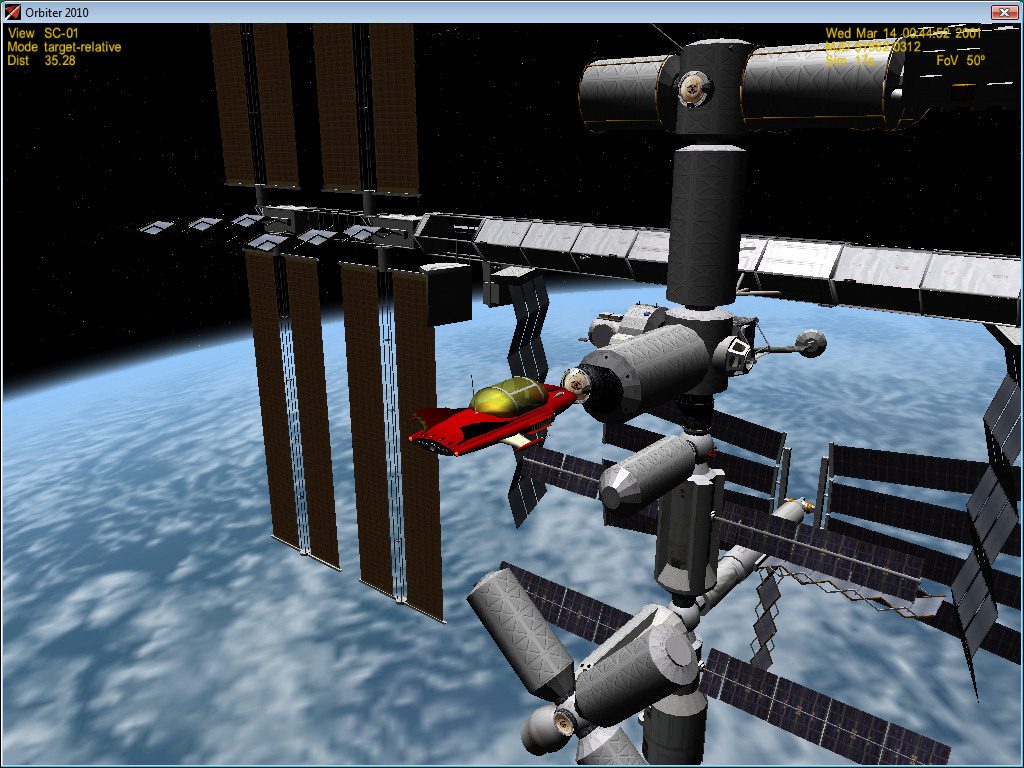

Each features several modes of operation, with all commands given via the keyboard or mouse. The traditional simulated control interface in Orbiter consists of two multi-function displays and a head-up display. Ī Deltaglider docked to the ISS, demonstrating Orbiter's atmospheric visual effects. This mode can also display labels on the celestial bodies in the Solar System at certain coordinates on their surface for indicating cities, historical markers, geological formations, and other interesting sites.

The planetarium mode can also display labels indicating the location and identity of objects in the Solar System, such as planets, moons, or vessels, that appear within a certain proximity based on their type.

Orbiter addons 2010 simulator#
The simulator also includes a planetarium mode that allows ecliptic and celestial grids to be overlaid onto the star map, along with labels of the constellations and other celestial markers. Although Orbiter contains a database of over 100,000 stars, these are for display purposes only and interstellar travel is currently not possible in the simulator. Many dwarf planets, asteroids (except Vesta), and comets not included in the simulator are available as add-ons. The Solar System as presented in Orbiter consists of the Sun, the eight planets and their major moons. Users can also build space stations in orbit. Docking and attachment systems allow the user to simulate docking with a space station or other spacecraft, and rendezvous with and retrieval of satellites. Everything between ground movement and interplanetary travel is supported, including orbital and sub-orbital flight, although only vessel-ground collisions are supported. The simulator is realistic enough to re-enact historical space flights, and the ability to fly fictional ships also allows the player to reach areas of the Solar System that cannot be reached by human spaceflight at the present time.Ī spacecraft's engines are defined only by the amount of thrust they put out and amount of fuel they use, allowing anything from solar sails to conventional rocket engines to futuristic nuclear fission and fusion drives to be simulated. Orbiter is a realistic physics simulator which allows users to explore the Solar System in a number of spacecraft, both realistic, such as the Space Shuttle Atlantis and fictional, such as the "Delta-Glider." Schweiger has included fictional spacecraft to allow for easier flights for less experienced users. It has been used as a teaching aid in classrooms, and a community of add-on developers have created a multitude of add-ons to allow users to fly assorted real and fictional spacecraft and add new planets or planetary systems. Martin Schweiger, a senior research fellow in the computer science department at University College London, who felt that space flight simulators at the time were lacking in realistic physics-based flight models, and decided to write a simulator that made learning physics concepts enjoyable. The simulator was released on 27 November 2000 the latest edition, labeled "Orbiter 2016", was released on 30 August 2016, the first new version of the simulator since 2010. Orbiter is an open source space flight simulator program developed to simulate spaceflight using realistic Newtonian physics. Orbiter simulation of Space Shuttle Atlantis lifting off from Kennedy Space Center Launch Complex 39Ģ016 (30 August 2016 5 years ago ( ))


 0 kommentar(er)
0 kommentar(er)
